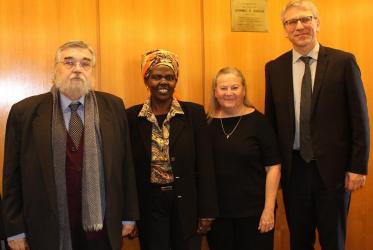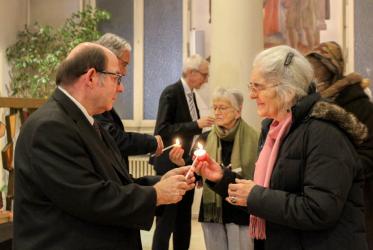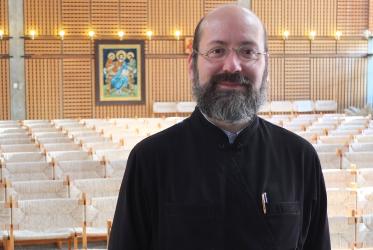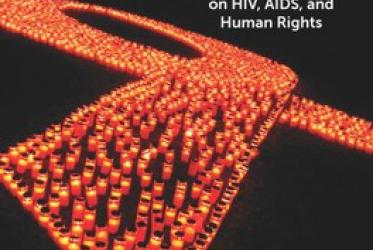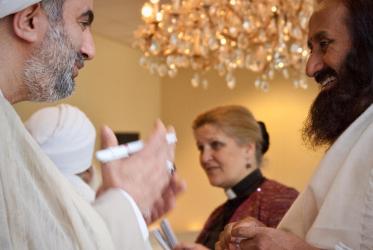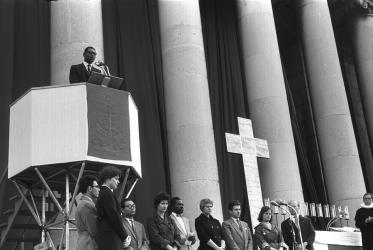Displaying 641 - 660 of 922
Joint Consultative Group between the WCC and Pentecostals
30 March - 04 April 2017
Fuller Theological Seminary, Pasadena CA, USA
Christians in Geneva pray for reconciliation
20 January 2017
Plans for 2017 decided by WCC Executive Committee
01 December 2016
Archbishop Job of Telmessos: Church unity is still our dream
31 October 2016
Archives of CEC history available for study
04 October 2016
Religious leaders of many faiths talk peace in Assisi
21 September 2016
WCC general secretary reflects on peace in Palestine and Israel
20 September 2016
WCC book featured in UN discussion on gender, religions and health
16 September 2016



